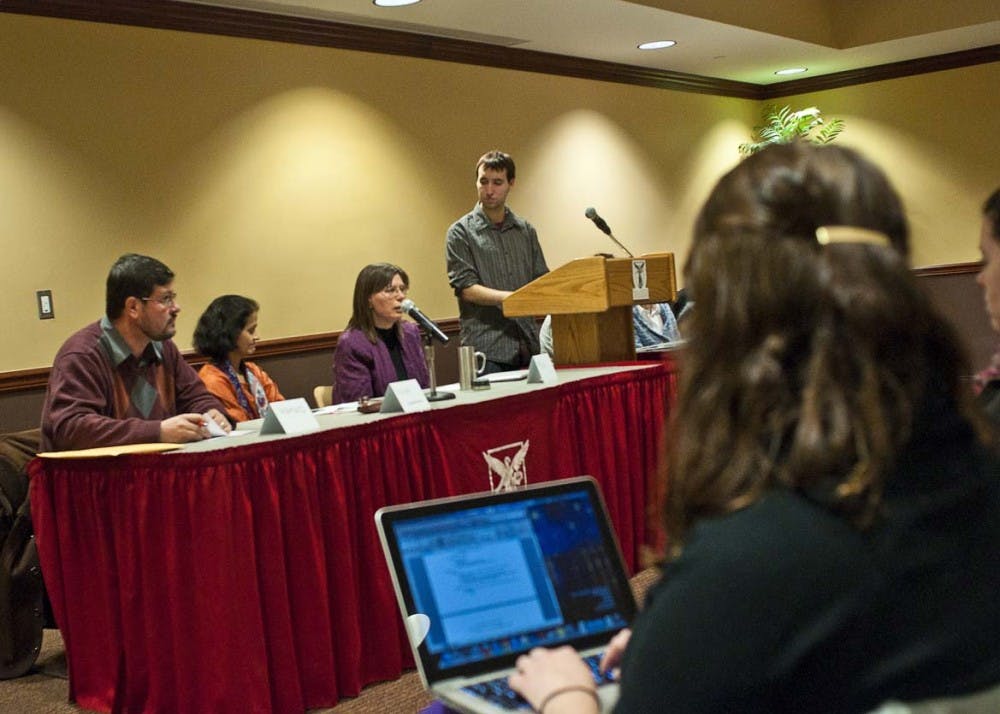Local leaders of major world religions shared their thoughts on the future of religion and the “Green Movement” at a panel discussion Friday.
The discussion took place at the L.A. Pittenger Student Center and was free and open to the public.
Topics on several environmental issues were discussed such as: relevant scriptures, how each religion frames the issue, ethics and practices, why the religious and scientific communities are so far apart on the subject, and how they can come together in the future.
They began confronting the issue of global warming and the heavy toll that it’s taking on not only the planet but also humanity itself.
“It’s a disaster,” Mai Kuha, an assistant professor of English, said. “Global warming is going to cause a rise in food scarcity and increase illness, which will bring society to political unrest.”
Each representative shared personal opinions as to why religious communities and environmentalists are so divided and what it will take to unite these two groups.
Mohammad Hamad of the Islamic Society of Sheboygan County said the religious community doesn’t see any division between science and religion and hopes these two groups grow closer to one another.
“Religion does not prevent seeing knowledge,” he said. “You have to see the knowledge and the science but you also have to go beyond that point.”
Carl Frost, a Ball State graduate, said we will never come to a resolution to this issue if everyone will continue to disagree with each other.
Usha Shivaswamy, a former president of the Indiana Association for Institutional Research, said selfishness and greed are the main elements that are causing these environmental problems.
“Religion tells what we need to use by not exploiting our sources,” she said. “We cannot be irresponsible; we have to use our resources wisely.”
Carrie Jo Miller, a commissioned Presbyterian lay pastor at Muncie’s First Presbyterian Church, said we have to keep trying to get other faiths to come together to solve this problem, because the future of our children and their children is at stake.
“The Earth can renew itself until it’s overwhelmed with exhaustion, just like the nature of our very own bodies,” she said.
There is also an opportunity for financial perks when one has an eco-friendly state-of-mind.
Frost said you can save yourself some money by choosing eco-friendly alternatives, such as riding a bike, turning off the lights and making simple sacrifices.
The representatives stressed that the only effective global solution to this problem is to change the behavior of individuals one by one — not the entire society all at once.
As a local initiative, the representatives encouraged students to plant trees around campus grounds and to grow a garden for food in the dining halls.
They said they believe this will help overcome the passivity of the emerging environmental issue and will help raise awareness.
It’s not the lack of food or overpopulation: it’s over distribution, Hamad said. There’s a share for all, but it’s only a matter of regulation, he said.
People don’t realize the scope of the emergency in this, John Vann, Green Initiatives coordinator, said.
“If we don’t immediately take care of this climate issue, then soon nothing else will matter,” he said.


